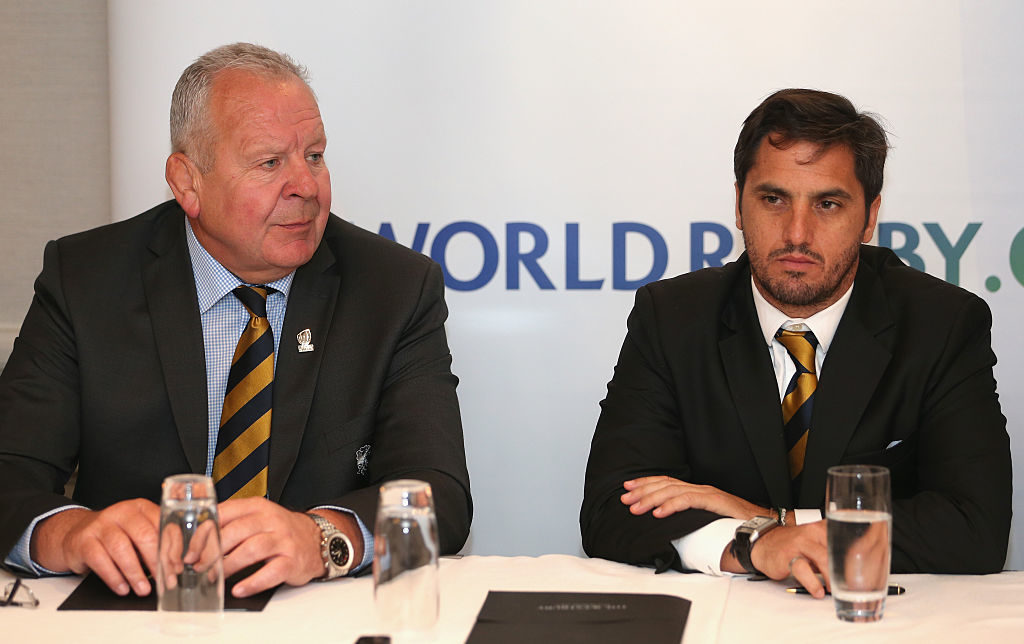World Rugby needs a leader with the vision and drive to bring the hemispheres together for the benefit of the global game, writes JON CARDINELLI.
In early 2017, World Rugby spent a great deal of money to employ an independent team of professionals to assess the World Cup bids of France, Ireland and South Africa. The bids were analysed and evaluated in a seemingly transparent manner. At the end of the process South Africa was announced as the preferred candidate to host the 2023 World Cup.
Later that year, World Rugby held a press conference in London to announce that France, rather than South Africa, would host the 2023 World Cup. After a brief interval that saw Bernard Laporte and his bid team dancing and singing ‘Allez Les Bleus’ in front of a largely stunned media contingent, World Rugby chairman Bill Beaumont was wheeled out to explain why the final decision was at odds with that of their independent panel.
France finished second in the evaluation process, but won 24 of the 39 votes on offer. Laporte’s late campaign to sway the smaller unions – Rugby Africa, the most notable among them – had proved decisive.
ALSO READ: Italy backs Bill Beaumont for World Rugby re-election
Beaumont went on to praise the process and congratulate France. The chairman was grilled by the media on a process that SA Rugby president Mark Alexander later described as ‘opaque’. In subsequent days, media commentators – many of those from the home nations – questioned the leadership and integrity of the game’s custodians.
Three years later, and another process is being questioned as Beaumont runs for a second term as chairman. While Beaumont and his opponent Agustin Pichot have given various media interviews over the past week in an attempt to inform public opinion, the real battle for power is playing out behind closed doors.
It’s interesting to note that Laporte, who headed up France’s 2023 World Cup bid committee and has a lot of political influence, will replace Pichot as vice-chairman if Beaumont is re-elected. The unions comprising the Six Nations are expected to vote for Beaumont, while those making up Sanzaar should back Pichot. It remains to be seen how the smaller unions will vote, but again there are rumours of an alliance between Rugby Africa and Laporte. Fiji could also throw in their lot with Beaumont.
The battle between Pichot and Beaumont has been likened to that of David versus Goliath. Many have made the point that, in the absence of real sport, this is as close to a real contest that we’re going to get.
COLUMN: My wish for a global season
The players in this case are fighting for more than the outcome of a single match. The game itself is on the line. Whoever wins the vote will be tasked with steering the sport through an unprecedented period of adversity, as well as addressing the many issues that plagued it well before the Covid-19 outbreak.
Both men believe they are champions of change. In a recent interview with the Telegraph, Beaumont said that he and Pichot were ‘maybe going in the same direction but had a different way of getting there.’ Tellingly, he added, ‘Gus was frustrated when things were not happening quickly enough and I think that is when he decided to go on his way.’
Has Beaumont done enough over the past four years to warrant another term? Not much has changed during his tenure. Rugby is still beset by financial and player-welfare issues. Innovative proposals, such as the Nations Championship, have been blocked by the home nations. English and French clubs still have too much say in how the game is structured and run.
ALSO READ: Gold backs Pichot for top job
Pichot has called for a global season that will align the two hemispheres. The current system is not working, and it’s been interesting to note how many prominent rugby figures – 2003 World Cup-winning coach Clive Woodward and current USA boss Gary Gold, to name a few – have publicly voiced their support for the former Argentina scrumhalf’s vision.
The game has been professional for 25 years. Beaumont says that Pichot is frustrated by the fact that the wheels of change are turning at a glacial pace. He may as well be talking about the rugby community at large. Significant change – and more specifically, a move toward a global season that benefits all unions and ticks the boxes of player-welfare and revenue – is long overdue.
The Covid-19 crisis has hit the sport hard, but it has also presented an opportunity. It would be a shame if those with the power to make a change and serve the global game opted to protect the status quo and look out for their own interests.
Photo: Andrew Redington/Getty Images





